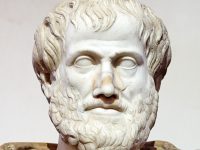 |
||
|
New technologies, and particularly developments in genomics, have significantly changed the theoretical understanding of human beings: the nature and culture of man can be modified alike. However, considering genes to be the vessel holding all our values and disvalues, our ways of behaviour and of life, may be mistaken, as in fact they interact with a host of other factors. The theoretical understanding that human beings have of self has changed considerably over the twentieth century. The huge progress made in the field of biology is not unconnected with this change, which by genetically mapping the human animal has opened the gateway to altering what seemed unchangeable in human nature in ways, as yet, not wholly clear. Though it is evident that rationality has evolved historically, and even depends on man being open to the unpredictable possibility that it is now technically possible to alter nature (beginning in 1953 with the discovery of the structure of DNA and culminating in 2000 with the Genome Project), which had seemed unalterable for centuries. Somewhere between nature and culture When Aristotle defined man as a «rational animal», he was characterizing an «essence», in other words, a set of defining features, supposedly fixed and immutable. The historical development of rationality showed us that «rational» does not denote a historically stable, clear and comprehensive set of categories and valid modes of thought, for which we can define a metatheoretical basis. Thus, we could state that man has no nature, rather history, or that man is, above all, a symbolic animal, i.e., a linguistic being, a cultural creature. And the set of practices designed to educate man, confer his most authentic form, change his way of life, relied on moral and educational issues, changing society, institutions, and the set of practices that Foucault, generically, called «technologies of the self». The «natural» facet of man –beyond mere animality– became very reminiscent of essentialist philosophies that would come to support some variant of lex naturalis or natural law of ethics and justice, which went into decline during the twentieth century. Even the position based on the «innate giftedness» of human learning capabilities meant appealing to what cannot be changed and, thus, escapes the scope of intervention. From Cassirer to Sartori, to give two notorious and influential examples, the characterization of man, and even the profound changes that contemporary social developments have brought about in our way of being, have been considered as changes in the structure of a symbolic being, brought about by changes in information and communication systems facilitated by technology. In any case, man is conceived, from these perspectives, to put it in classical terms, as a being whose being consists in understanding. Knowledge of the genome has changed our understanding of nature, opening up new possibilities: man’s natural facet is as susceptible to change as is his cultural aspect, which extends the scope of potential technologies far beyond the limits of the self. Understanding nature and, therefore, man’s nature, has been released of any possible essentialist interpretation. We must think of new ways to jointly express the two dimensions that typically define man; it seems certain that culturalism characteristic of idealistic, existential and hermeneutical philosophies currently represents a limited approach, as was, in other times, our understanding of nature in essentialist, idealistic or materialistic terms. This leads us to the first question, perhaps the hardest one to answer, about the genome: What can we expect as a result of this knowledge and in what ways does it change how man can tinker with mankind? The importance of the second question, beset by the implications and future potential of gene diagnosis and therapy, has attracted attention to the ethical issues related to both the potential of genetic engineering and the social value of personalized information in this respect. By no means, however, does this lessen the way in which our understanding of man has changed, as it affects the distinction between what it is innate and what is acquired, i.e., how we determine the extent of what is bestowed by nature and how much this is shaped by culture, with the profound change implied by the fact that the natural and innate component has ceased to be unchangeable. So great is the sensation of witnessing a new continent that it is very difficult to predict the specific challenges we face. What first comes to mind is how to avoid the risks implied by the privatization of knowledge, implicit in the resolve to patent genes, and the dangers of controlling lives, which could come about by the fact that those with political or economic power over us may be aware of our genetic predisposition and susceptibility to certain diseases. But one must understand that we have hardly surpassed the theoretical level of generalization: as yet, our knowledge of genes does not equate, in most cases, with the possibility of modifying them therapeutically. However, there are countless situations in which we can envisage ourselves, due to the potential of such intervention, thus reflection is possible and necessary. We must avoid the tendency to idolize genes as if they harboured the key to our conduct and way of life; having knowledge of the gene is to know certain qualities, which are expressed by interaction with a host of other factors. The same fixation about the importance of genes could also reinforce a current trend in our society: a reverence for science and techno-science with dogmatic attitudes that exclude not only other modes, which are not unreasonable, of drawing on the experience (like art and philosophy), but also fallibilism, or the possibility that all knowledge –including scientific knowledge– could, in principle, be mistaken, with the self-criticism that has accompanied it historically. Turning our knowledge of genetics into the sole criterion on which to make certain crucial decisions is risky. Accordingly, it is necessary to review the claims we make on ethics, the place this form of reflection should occupy, and the appropriateness of acknowledging that there are no valid traditional answers to solve entirely new problems. Consequently, we must be aware of their limits, open our minds to the novelty of what has become possible, and be willing to innovate and up-date legislation. All this points to the creation of new areas of communication and debate, with the participation of experts from various fields as well as well-informed non-experts. No purely religious or technocratic answers can settle the debate, nor, therefore, can it be left to professionals alone –as if those affected by these changes were not society as a whole–.
new ways of understanding humanity In any case, some key aspects of man’s self understanding have changed, and we must consider this the starting point from which to take theoretical positions on the new situation. The novel picture science has painted of the human being changes the traditional ways of understanding the relationship between mind and body. This traditional duality breaks up into a series of layers that combine continuity and discontinuity. In the most human-like forms of behaviour, growing knowledge of the neural basis of behaviour and mood has led to the development of chemical approaches to mental problems, which may have to reach new frontiers and counterbalance the reduction of the mental to the physical, in a new awareness of man as a linguistic being. Whether one is in agreement with this trend or not, the debate about reducing the mental to the neuronal is one of the issues focussing much theoretical concern, in fields ranging from psychiatry to epistemology and ethics. This debate will remain open until there is greater plausible communication of the levels of reality involved and theoretical approaches, which are now diametrically opposed. Also deeply altered is our prior understanding of man’s place in nature, especially his inequitable relationship with other animals, on which ethics and legal regulations have always been based. The re-evaluation of this relationship brings with it a fundamental change in understanding, especially as a difference previously deemed absolute, i.e. the human difference, can be relativized. The question of «dignity», understood in the Kantian sense as an indispensable trait of human nature, can be questioned if it is interpreted as «sanctity of life» when a rational moral debate is proposed, without ideological preconceptions, about situations in which the decision to terminate a human life is acceptable; however, the same is true when talking about the need to respect something common to humans and animals, namely the need to eradicate or minimize suffering, and this could be seen to have implications in terms of man’s duty towards animals. All this implies that it is the very idea of man that should be reformulated if the boundaries between man and other living things have altered. In this debate, we can find examples of the two main theoretical positions such as, for instance, the proposal by Peter Singer related to relativizing the whole idea of «dignity», and that of Hans Jonas, whose anthropological vision based on new developments in biology retrieves the magnitude that classical spiritualism had attributed to man and, since its reconsideration in traditional critical dialogue, proposes necessary ethical innovation should take place. The technical ability to manipulate the germline (producing effects not only in the individuals themselves but also in their genetic lineage) emphasizes a problem that had been posed in criticism of the destructive effects of economic growth, namely of our possible obligations to future generations. As they are unable to take part in this moral debate, we should think of them as «virtual subjects with rights» that we must respect, especially the right to inherit a habitable natural habitat, and the right to inherit unaltered genetic endowment, that has not been tinkered with according to our current whims regarding human excellence (physical or intellectual), the sole exception being the elimination of predictable and preventable genetic diseases. The revision of our conception of man, indicated by the theoretical shift discussed, meets serious conceptual hurdles when establishing criteria to support and regulate the growth of knowledge. Greek thought conceived knowledge as a realization of the rational essence of man who, by this means, achieved happiness, or in other words, self-fulfilment. The philosophical thought of Modernity broke away from that contemplative understanding of both knowledge and of man, adopting the point of view that knowledge is an intervention modifying a reality undergoing a constant process of change, and understanding man as an active subject in such intervention. In modern thought, the subject’s action makes sense in so far as rational, theoretical and practical action pursues interests, by which in the words of Kant, the meaningfulness –and limits– of action are granted by the «interests of reason», which are equivalent to the «supreme interests of humanity». The critical thinking of Modernity (placed within it as self-criticism, or seeking to transcend it as «postmodernism») has questioned reason, making us see that we are in a paradoxical situation: reason, especially in techno-scientific terms, is an unstoppable dynamic. It is hardly possible to contemplate that what is technically possible will not be done for the sake of self-restraint. However, we no longer know what interests are being served by rationality, we are no longer even sure that they serve the interests of humanity, because we have lost the united image of reason and human beings support the Kantian notion of autonomy. But from such a loss we cannot simply retrieve the Aristotelian ideal of happiness, self-fulfilment or the good life. Indeed, what we have lost sight of is the notion of what the ultimate goals of humanity are. Therefore, our debate about the changing concept of man, nourished by hermeneutics or biotechnology, and about the new moral needs, created by the current potential for intervention, lacks a shared frame of reference. For this reason, reflection or debate cannot be reduced to whether we are in favour or against technological development which, moreover, will not stop, nor can it be limited to seeking greater constancy with established moral principles. All these reflections merely open up a field of theorizing which, in its scope and specificity, is difficult to predict and, inevitably, will develop into a long dialogue as new situations will undoubtedly unfold. It is almost only possible to conceive the most visible breakpoints brought about by new developments, and even this attempt leads to multiple positions. I will mention Jonas again, to point out that, as a consequence of this break from tradition, some see the possibility of asserting a profound connection between the organic and the human, and the need to rethink the relationship between the living and the spiritual through new ontological construction, which stems from biology. Such thought has received contributions from Heidegger, though still maintaining a distance from the evolutionary optimism of Teilhard de Chardin or A. N. Whitehead. Other positions in this respect are much more pragmatic and intellectually sober; though they do not reduce their scope by avoiding explicitness about all the notions which remain implicit. We see, then, that the issue we address in this monograph comprises many other issues, which need to be dealt with specifically. Therefore, our aim is not to close any debate, but rather, contribute to sparking new and necessary debate. |
© M. Lorenzo Progress in genetics opens up new challenges that have not yet been explored. The risk that those with political or economic power over us may access information about our genetic predisposition, and susceptibility to certain diseases, is one of these newly opened gateways. «Knowledge of the genome has changed our understanding of nature, opening up new possibilities: man’s natural facet is as susceptible to change as is his cultural aspect» «Turning our knowledge of genetics into the sole criterion on which to make certain crucial decisions is risky. Accordingly, it is necessary to review the claims we make on ethics» «As a consequence of this break from tradition, some see the possibility of asserting a profound connection between the ‘organic’ and the ‘human’, and the need to rethink the relationship between the living and the spiritual»
|
|
Search
© Mètode 2011 - 67. Online only. Human Nature - Autumn 2010






